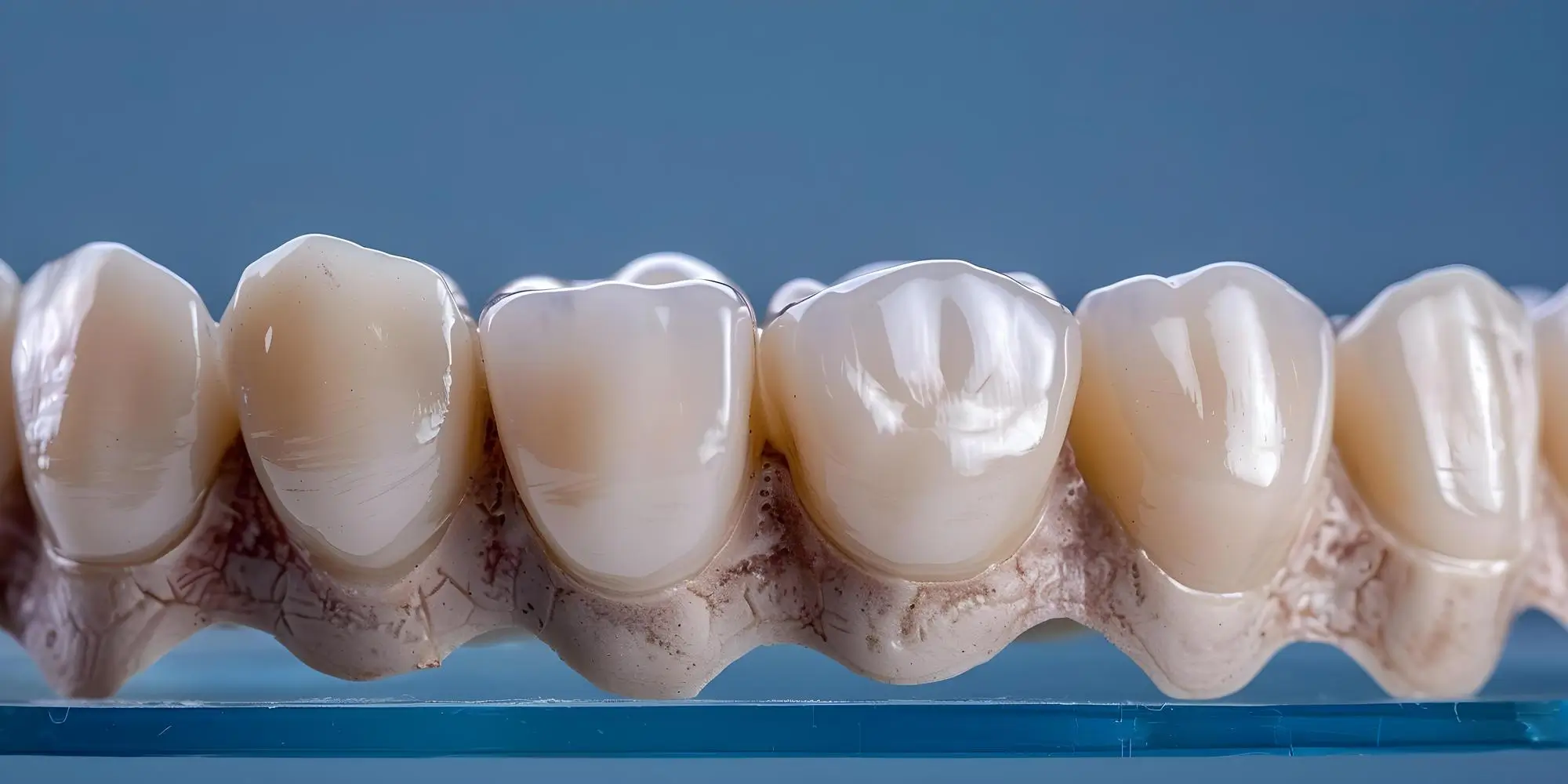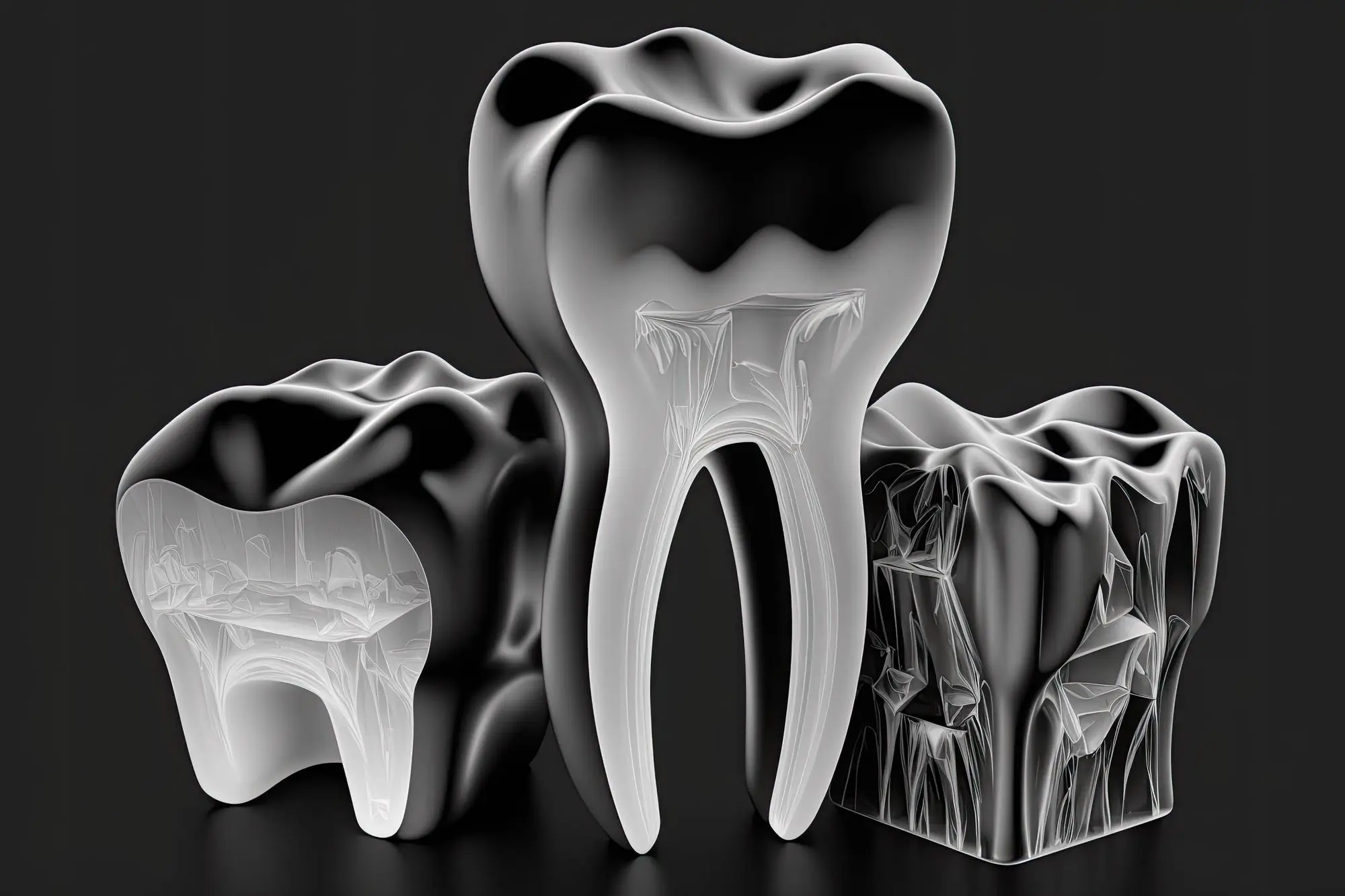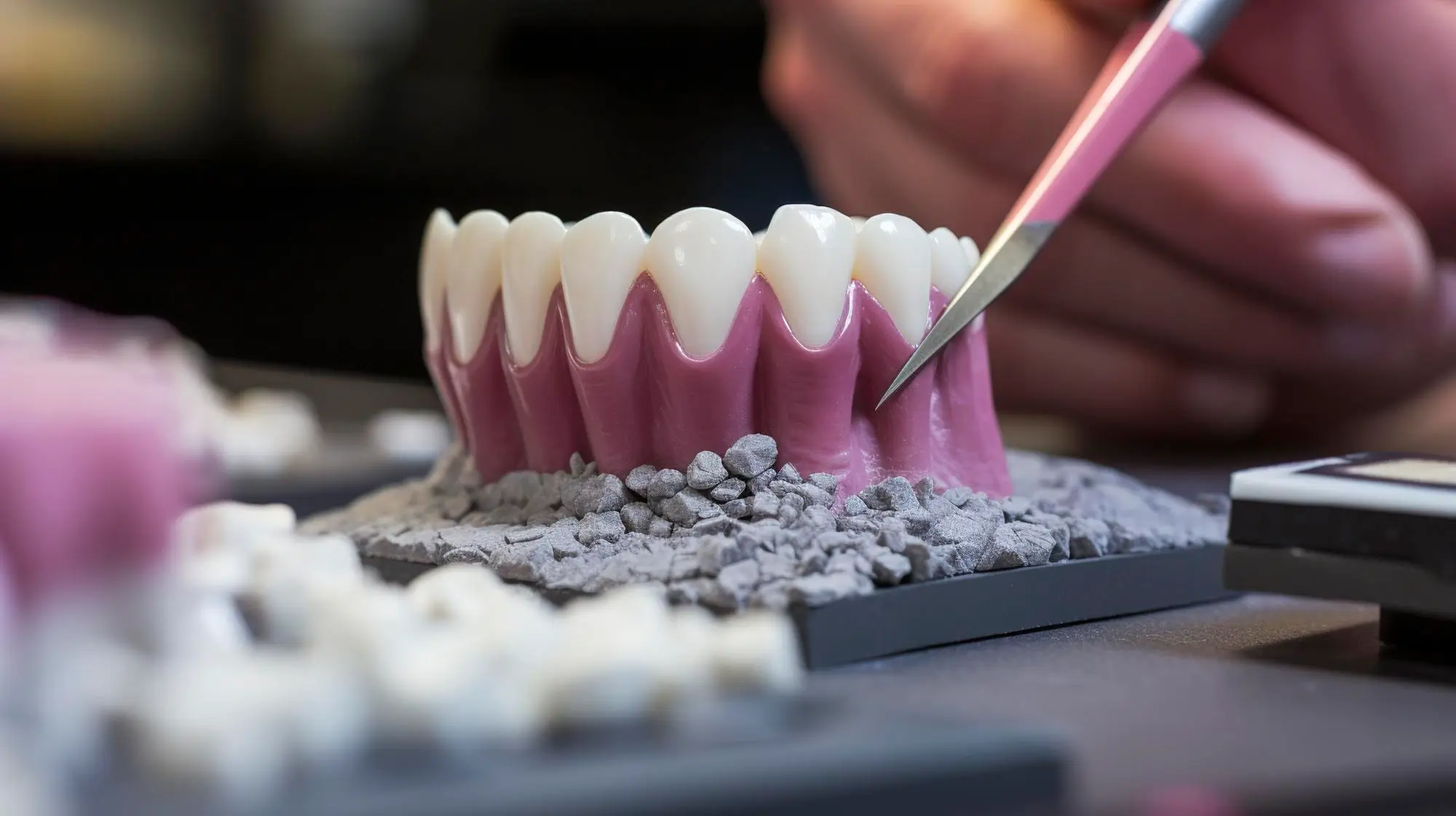In this post, we will review 4 types of dental material in holistic dentistry and compare them. This content can be important for choosing the right type of holistic dentistry material for your teeth and understanding the pros and cons of each material.
Introduction to Holistic Dentistry
Holistic dentistry, also known as biological or alternative dentistry, represents a progressive approach to oral health care that considers the entire body’s well-being. Unlike traditional dentistry, which focuses primarily on treating oral symptoms, holistic dentistry takes a broader view, acknowledging the intimate connection between oral health and overall health.
Read it: Synergy of Biomimetic and Holistic Approach
Principles of Holistic Dentistry
- Whole-body Health: Holistic dentistry emphasizes that oral health is interconnected with systemic health. It recognizes that oral infections and inflammation can impact other parts of the body, such as the heart and lungs. By promoting oral health, holistic dentists aim to enhance overall well-being.
- Biocompatibility: One of the fundamental principles of holistic dentistry is the use of biocompatible materials. This involves avoiding substances that may have adverse effects on the body, such as mercury in amalgam fillings. Instead, holistic dentists opt for materials that are safe and compatible with the body’s natural systems.
- Preventive Care: Prevention is key in holistic dentistry. Dentists educate patients on proper oral hygiene practices, nutrition, and lifestyle habits that support dental health. By empowering patients with knowledge and preventive strategies, holistic dentistry aims to reduce the need for invasive treatments.
- Minimally Invasive Techniques: Holistic dentistry favors minimally invasive techniques whenever possible. This approach preserves as much natural tooth structure as possible and promotes faster healing. Techniques like ozone therapy and laser dentistry are used to treat dental conditions with minimal discomfort and side effects.
- Patient-Centered Care: Holistic dentistry places a strong emphasis on patient-centered care. Dentists take the time to understand each patient’s unique needs, preferences, and health goals. This personalized approach ensures that treatment plans are tailored to the individual, fostering trust and satisfaction.
Benefits of Holistic Dentistry
- Improved Overall Health: By addressing oral health as part of overall health, holistic dentistry may help reduce the risk of systemic conditions linked to oral infections and inflammation.
- Enhanced Biocompatibility: The use of biocompatible materials reduces the risk of allergic reactions and other adverse health effects associated with traditional dental materials.
- Natural Healing Approaches: Holistic dentistry integrates natural healing approaches, such as herbal remedies and homeopathic treatments, to support oral health and overall well-being.
- Patient Empowerment: Patients are actively involved in their treatment decisions and empowered with knowledge to maintain long-term dental health.
Conclusion
In conclusion, holistic dentistry materials offer a comprehensive approach to oral health care that emphasizes the integration of oral health with overall well-being. By adopting principles of biocompatibility, prevention, and patient-centered care, holistic dentistry at Fortune Smiles Dental Care aims to provide safe, effective, and personalized dental treatments that promote long-term health and happiness. For consulting about holistic dentistry, contact us.
Biocompatible Materials in Holistic Dentistry
In holistic dentistry, the choice of materials used in treatments plays a crucial role in promoting overall health and well-being. Biocompatible materials are preferred over traditional options due to their compatibility with the body’s natural systems and reduced risk of adverse effects. This section explores the significance of biocompatible materials, their types, and their applications in modern holistic dental care practices.
Importance of Biocompatible Holistic Dentistry Materials
- Safety and Compatibility: Biocompatible materials are selected based on their ability to integrate harmoniously with the body’s tissues without causing adverse reactions or toxicity. This reduces the risk of allergies, sensitivities, and long-term health complications often associated with conventional dental materials like amalgam fillings containing mercury.
- Promotion of Oral and Systemic Health: By using materials that mimic the natural properties of teeth and bone, holistic dentists aim to support not only oral health but also systemic well-being. For instance, composite resins and ceramic materials are preferred for their durability, aesthetic appeal, and minimal impact on surrounding tissues.
Types of Biocompatible Materials
- Composite Resins: These tooth-colored materials are composed of a blend of plastic resin and finely ground glass particles. They are versatile and can be used for fillings, bonding, and cosmetic enhancements. Composite resins bond directly to the tooth structure, providing strength and resilience.
- Ceramic Materials: Porcelain and ceramic materials are highly biocompatible and known for their natural appearance and durability. They are used for crowns, veneers, and bridges, offering excellent aesthetic results and long-term performance.
- Zirconia: Zirconia is a strong and biocompatible ceramic material increasingly used in dental restorations due to its strength, durability, and natural translucency. It is suitable for crowns, bridges, and implant abutments, providing both aesthetic and functional benefits.
- Bioceramics: These materials are designed to mimic the natural mineral composition of teeth and bones. They are used in root canal treatments (endodontics) and dental implants due to their bioactivity and ability to integrate with surrounding tissues.
Read it: Dental Implants Material
Applications in Holistic Dentistry
- Mercury-Free Fillings: Holistic dentists avoid amalgam fillings containing mercury due to health concerns and instead opt for composite resins or ceramic materials.
- Allergic Reactions: Biocompatible materials reduce the risk of allergic reactions and sensitivities often associated with metals and other non-compatible substances.
Conclusion
The use of biocompatible materials in holistic dentistry reflects a commitment to patient safety, health, and well-being. At Fortune Smiles Dental Care, we prioritize the selection of materials that support overall health while delivering aesthetic and functional benefits. By integrating biocompatible materials into our treatments, we strive to provide our patients with safe, effective, and sustainable dental care solutions.
We provide Full Mouth Reconstruction service which is a comprehensive approach to total oral rehabilitation.
Comparison of Dental Materials in Holistic Dentistry
In holistic dentistry material comparison, the selection of dental materials is pivotal in providing safe, effective, and biocompatible treatments tailored to individual patient needs. This section delves into the comparison of various dental materials commonly used in holistic dental practices, emphasizing their distinct characteristics, benefits, and applications.
Read it: Dental Inlay Material Comparison
Comparison of Dental Materials
-
Composite Resins
- Composition: Composite resins consist of a mixture of plastic resin and finely ground glass particles. They are tooth-colored and can be matched to the natural shade of the teeth.
- Advantages: Composite resins bond directly to the tooth structure, providing excellent aesthetic results. They require minimal removal of tooth structure compared to amalgam fillings.
- Considerations: While durable and aesthetically pleasing, composite resins may be more prone to wear and staining over time compared to ceramic materials.
-
Ceramic Materials
- Types: Porcelain and ceramic materials are widely used in holistic dentistry for crowns, veneers, and bridges.
- Advantages: Ceramic materials are highly biocompatible, durable, and resistant to wear. They closely mimic the natural appearance of teeth and are stain-resistant.
- Considerations: They require careful preparation of the tooth structure and may be more costly than other materials.
-
Zirconia
- Properties: Zirconia is a strong, biocompatible ceramic material known for its durability and natural translucency.
- Advantages: It is suitable for crowns, bridges, and implant abutments due to its strength and aesthetic appeal. Zirconia restorations blend seamlessly with natural teeth.
- Considerations: Zirconia restorations may require specialized equipment and expertise for fabrication.
-
Bioceramics
- Applications: Bioceramics are used in root canal treatments and dental implants due to their bioactivity and ability to integrate with surrounding tissues.
- Advantages: They promote natural healing and reduce the risk of infections. Bioceramics are biocompatible and non-toxic.
- Considerations: Specialized training and equipment are needed for precise placement and handling of bioceramic materials.
Considerations for Holistic Dentistry Practices
- Safety and Biocompatibility: Holistic dentistry prioritizes the use of materials that minimize the risk of allergic reactions and systemic health issues. Biocompatible materials reduce exposure to potentially harmful substances, such as mercury in amalgam fillings.
- Longevity and Durability: Dental materials in holistic practices are selected based on their ability to withstand oral conditions and provide long-term stability. Ceramic and zirconia restorations are favored for their durability and aesthetic appeal.
- Patient-Centered Care: The choice of dental materials is tailored to meet the unique needs and preferences of each patient. Holistic dentists educate patients on the advantages and considerations of different materials to empower them in making informed decisions about their oral health.
Conclusion
The selection of dental materials in holistic dentistry is guided by principles of safety, biocompatibility, and patient-centered care. By comparing the characteristics and applications of various materials, holistic dentists at Fortune Smiles Dental Care ensure that treatments not only enhance oral health but also support overall well-being. We remain committed to providing our patients with innovative and sustainable dental care solutions that prioritize health and happiness.
Read it: Biomimetic Materials in Dentistry
Integrative Approaches in Holistic Dentistry
Holistic dentistry stands apart by embracing a comprehensive approach that integrates traditional dental care with complementary therapies and natural treatments. This section explores the various integrative methods employed in holistic dental practices, highlighting their benefits, applications, and how they contribute to promoting overall health and well-being.
Integrative Methods in Holistic Dentistry
-
Nutritional Counseling
- Purpose: Holistic dentists emphasize the role of nutrition in maintaining oral health and supporting systemic well-being. Nutritional counseling helps patients understand the impact of diet on dental health, such as reducing sugar intake to prevent cavities and promoting foods rich in vitamins and minerals for gum health.
- Applications: Dietary recommendations are tailored to individual patient needs, aiming to optimize oral hygiene and overall health outcomes.
-
Homeopathy
- Philosophy: Homeopathy utilizes natural substances in highly diluted forms to stimulate the body’s self-healing abilities. In holistic dentistry, homeopathic remedies may be used to manage dental anxiety, promote healing after oral surgery, or support oral health during periods of stress.
- Applications: Remedies are selected based on the patient’s symptoms and constitutional characteristics, providing gentle and personalized care.
-
Acupuncture and Acupressure
- Purpose: Traditional Chinese medicine techniques like acupuncture and acupressure are used in holistic dentistry to alleviate dental pain, reduce inflammation, and promote relaxation during dental procedures.
- Applications: Specific acupuncture points are targeted to address dental conditions and enhance overall well-being by restoring the balance of energy (Qi) within the body.
-
Herbal Medicine
- Benefits: Herbal remedies are employed for their anti-inflammatory, antimicrobial, and healing properties in holistic dental care. Common herbs like chamomile, calendula, and echinacea may be used in mouth rinses, poultices, or supplements to support oral health and reduce discomfort.
- Applications: Holistic dentists prescribe herbal preparations based on the patient’s oral health needs and preferences, integrating natural therapies into treatment plans.
-
Mind-Body Techniques
- Approaches: Techniques such as meditation, mindfulness, and relaxation exercises are integral to holistic dentistry for managing dental anxiety, improving patient comfort, and supporting overall well-being.
- Applications: Patients are guided in practicing relaxation techniques before and during dental appointments to reduce stress, enhance cooperation, and promote a positive dental experience.
Patient-Centered Care Philosophy
Holistic dentistry operates on the principle that oral health is interconnected with overall well-being. By integrating complementary therapies and natural approaches, holistic dentists aim to provide comprehensive care that enhances both dental outcomes and overall health. This patient-centered approach focuses on empowering individuals to take an active role in their oral health through informed decision-making and personalized treatment plans.
Holistic Dentistry at Fortune Smiles Dental Care
At Fortune Smiles Dental Care, we are committed to holistic principles that prioritize safety, effectiveness, and patient comfort. Our practice integrates evidence-based dentistry with natural therapies to offer comprehensive solutions that promote long-term oral health and overall wellness. By incorporating integrative methods such as nutritional counseling, homeopathy, acupuncture, herbal medicine, and mind-body techniques, we ensure that each patient receives individualized care that addresses their unique needs and preferences.
Conclusion
Integrative approaches in holistic dentistry expand treatment options beyond traditional methods, offering patients a holistic approach to oral health care. By embracing natural therapies and complementary practices, holistic dentists at Fortune Smiles Dental Care aim to optimize dental outcomes while promoting overall well-being. We remain dedicated to delivering compassionate care that respects the interconnectedness of oral health with the body’s overall health, empowering our patients to achieve and maintain a healthy smile for life.



